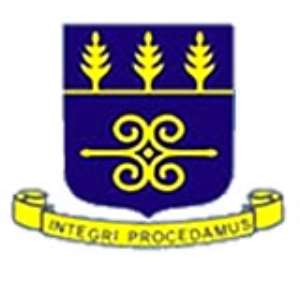
The University of Ghana is to establish a veterinary medical school next academic year.
The move is to increase the number of veterinarians from the current 220 to an appreciable number to enable them to effectively discharge their functions in the country.
Currently, the country is training its veterinarians in other African and European countries.
The President of the Ghana Veterinary Medical Association (GVMA), Dr Kwasi Bowi Darkwa, announced this in Accra yesterday at the media launch of the Eighth World Veterinary Day, which is being held on the theme "The diversity of the veterinary profession".
The day was instituted eight years ago by the Food and Agriculture Organisation (FAO) in collaboration with the World Veterinary Association to be celebrated on the last Saturday of April every year, to highlight the work of veterinarians around the world.
Dr Darkwa said when the school is finally established, it would save the government from spending hard earned foreign exchange on the training of veterinarians abroad.
He said it was unfortunate that Ghanaians held the perception that veterinarians treated only dogs and cats.
"Few people may be aware that the veterinary medical profession is the country's first line of defence in protecting its food supplies of animal origin from contamination," he explained.
Dr Darkwa stated that without an adequate number of experienced veterinarians to do inspection at the air and sea ports, tonnes of imported frozen meat, day old chicks, drugs and vaccines to ensure disease-free imports, the country's food supply could be under serious threat.
Dr Darkwa, however, said that notwithstanding the immense contributions of veterinarians in the country's development, their efforts were not rewarded.
He said that the most serious challenge facing the profession, which has caused the deterioration of animal health care in the country, was the unified extension policy introduced in 1997.
Dr Darkwa explained that the policy had resulted in veterinarians in most districts working under junior agriculture officers within the Ministry of Food and Agriculture (MOFA).
He said the GVMA and the Veterinary Council had drawn the attention of the MOFA to that policy and proposed the creation of the Ghana Veterinary Health Service to ensure efficient health care in the country.
The Acting Director of Veterinary Services of MOFA, Dr Enoch Boye-Mensah Koney, expressed concern about stray dogs and cats, which are not vaccinated, and called on owners of such pets to ensure that they were vaccinated, at least once a year.
"When people have pets, they should be interested in their treatment in addition to seeking advice from veterinarians every month, even if the pets are not sick".
Dr Koney called for collaboration amongst the District Assemblies, the Food and Drug Board and the law enforcement agencies to ensure compliance of laws regarding the movement and slaughtering of animals to ensure the safety of the public.
The Registrar of the Veterinary Council of Ghana, Dr S.A. Ofosu, paid tribute to the veterinary profession and other stakeholders for working hard to control diseases in the country.




 2024 elections: A vote for Mahama will turn Ghana's education system upside down...
2024 elections: A vote for Mahama will turn Ghana's education system upside down...
 Dumsor: NPP will be punished in election 2024 if gov't doesn't address current s...
Dumsor: NPP will be punished in election 2024 if gov't doesn't address current s...
 There is a clear need for the downstream petroleum audit services provided by SM...
There is a clear need for the downstream petroleum audit services provided by SM...
 Akufo-Addo directs GRA, Finance Ministry to renegotiate deal with SML
Akufo-Addo directs GRA, Finance Ministry to renegotiate deal with SML
 Kofi Bentil’s love, support for Bawumia will never represent IMANI – Franklin Cu...
Kofi Bentil’s love, support for Bawumia will never represent IMANI – Franklin Cu...
 NPP outperforms NDC in health infrastructure in Ashanti Region — LIPS report
NPP outperforms NDC in health infrastructure in Ashanti Region — LIPS report
 Critics fear Togo reforms leave little room for change in election
Critics fear Togo reforms leave little room for change in election
 Current power outages purely due to mismanagement – Minority
Current power outages purely due to mismanagement – Minority
 ECG hoists red flag to fight Ashanti Regional Minister over arrest of General Ma...
ECG hoists red flag to fight Ashanti Regional Minister over arrest of General Ma...
 Mahama’s 24hr economy will help stabilise the cedi; it’s the best sellable polic...
Mahama’s 24hr economy will help stabilise the cedi; it’s the best sellable polic...
